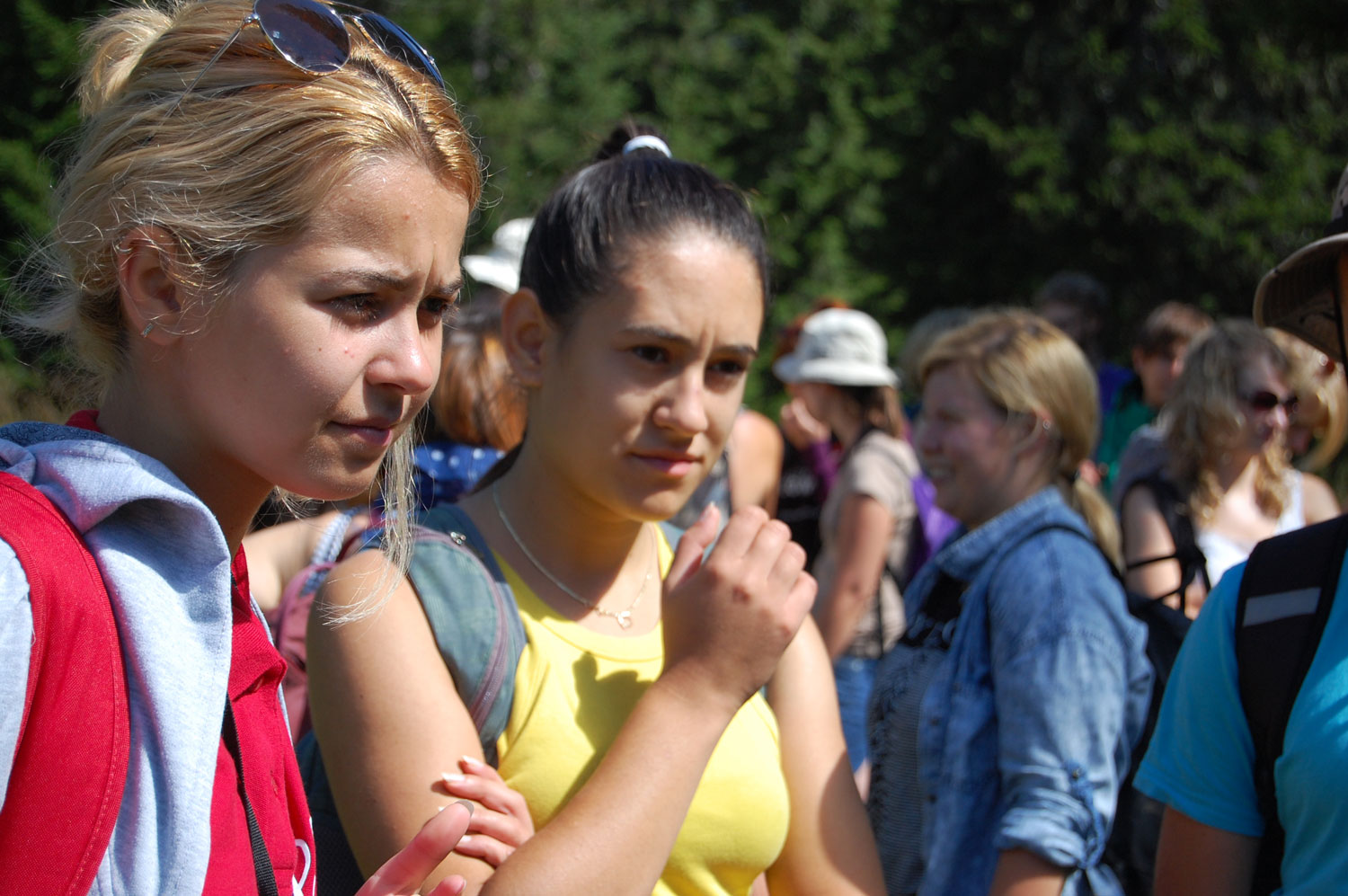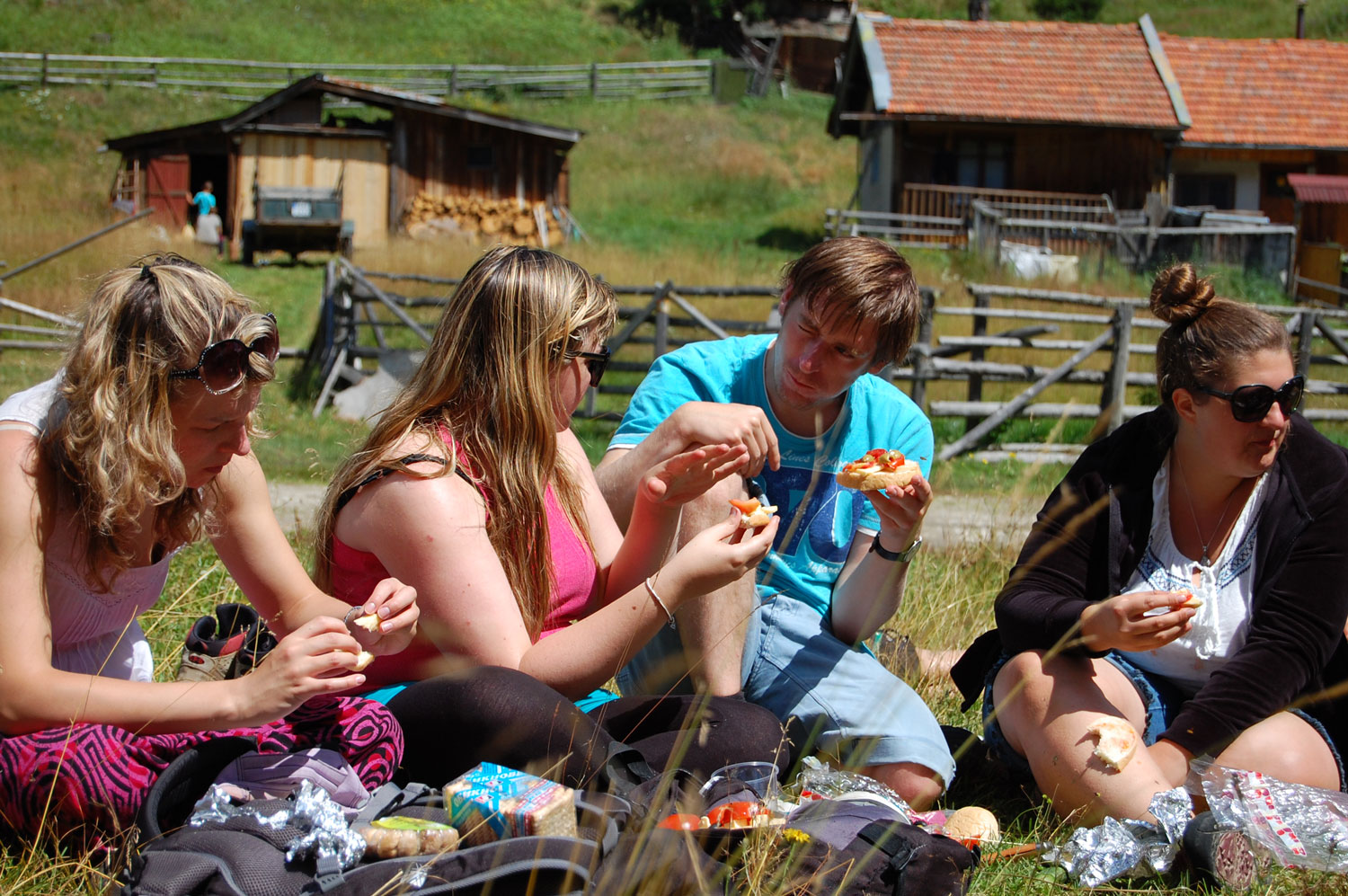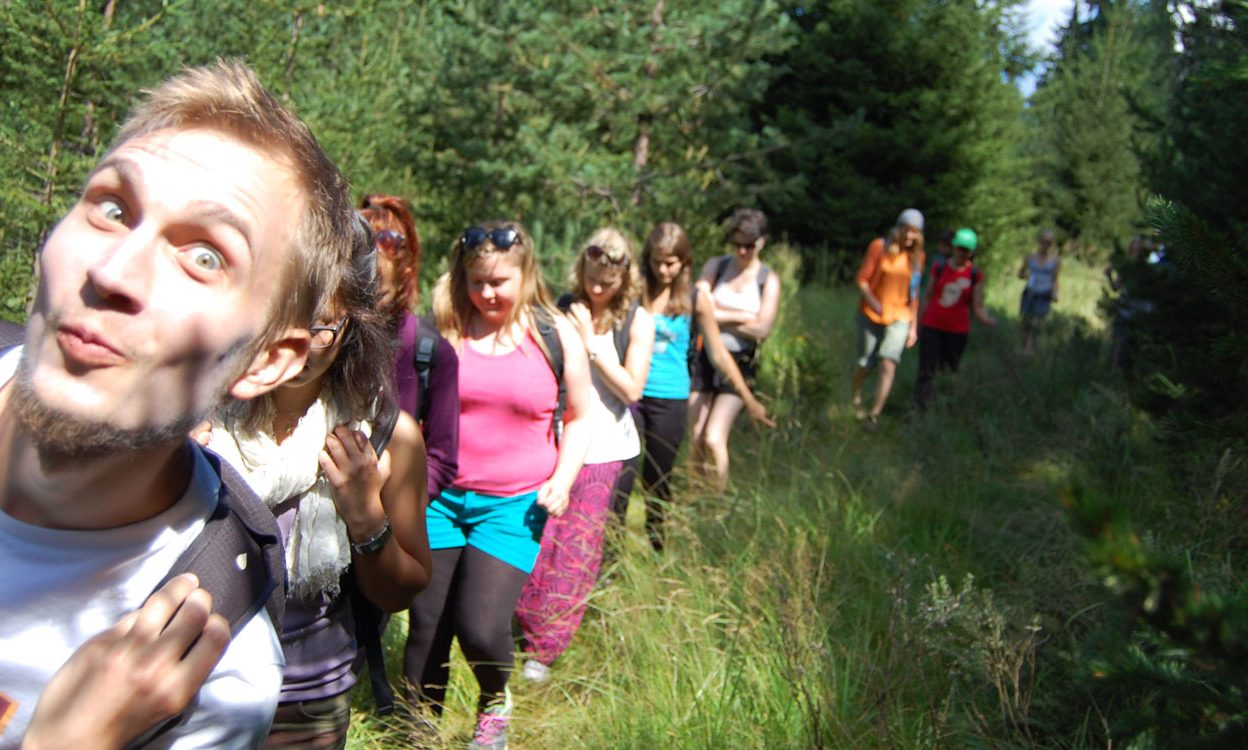Rady from Za Zemiata/Young Friends of the Earth Bulgaria
The day trip
Today, myself and the whole young FoEE group had a really nice excursion in the Rhodope mountains – around the lake area where we were camping. The trip took us around 5 hours, but we didn’t notice the time pass. We were busy talking, and collecting wild strawberries, raspberries and blackberries. Often we had to stop in order to take photos of the beautiful views all around us.
Our walk was guided by Vasko, one of the founders of the Chatuma forest centre that we are staying at, who is a very experience mountain guide and really concerned about our environment. He is one of the many change-makers we met on the camp. He is offering the local third-generation tree-cutters an alternative means of earning a living – the possibility of hosting ecotourism and childrens’ summer camps.
Another opportunity for the locals is the already traditional Beglika festival, which is going to happen just after our departure. The fest is attracting lots of visitors, but in an eco-friendly manner. Three of my colleagues are staying and going to experience the magic of this eco festival themselves. We already saw the camp of the volunteers, making preparations from the festival. We could reach their camp my kayaking and cycling – another great way of having fun and enjoying nature at the same time.

During the walk Vasko told us a lot of interesting facts about the local nature, people and history. He showed us in practice the differences between a natural reserve and a non-protected area. As we moved forward the scenery changed and lots of cutting lodges showed up. Tree cutting is the main occupation of the local men. Years ago the most common job for them was sheep keeping, but now it is not very common.
Other traditional occupations of the locals included fishing and hunting. Now the hunt is more like entertainment for tourists. Boars are being hunted, but also deer if their population wouldn’t be endangered. Fishing is prohibited only during the mating month of the fish in Lake Beglika, and we saw a lot of fishermen camping around the lake. We also met two groups of locals collecting mushrooms that are going to be dried and sold on the EU market. This and also the collecting of herbs are more good examples of eco-friendly living and earning practices.
The mountains themselves were created around 36,000 – 38,000 years ago, and consist of nine natural reserves. Around our campsite, we are close to three of them. We go to know the west and higher parts of the mountains, which are not as populated and settled as the east side, which has a more Mediterranean climate. Usually a lot of wild animals such as wolves, foxes, deer, endemic bird species, and brown bears live here. In Bulgaria there are two of the biggest reserves of brown bears – on here in Rhodope and one in the Pirin Mountains.
We stopped to have lunch near a local village and again met some very friendly and helpful residents. Our lunch was again an example of good agricultural practices – only locally produced, seasonal veggies and dairy products. We felt refreshed and read to conquer the nearest peak, which stands at an altitude of 1,700 metres. The last part of the trip was kayaking back across the lake to the camping area, so everyone got to try this unique means of transport. It was an amazing day in the magical Rhodope Mountains.
Dora from Young Friends of the Earth Croatia
The intercultural night. A perfect opportunity to put aside our differences and demonstrate them in an entertaining and interactive way.
With the 45 of us squeezing into a warm and comfortable room we start off with Austria. Serina talked about the four things she automatically connects to her homeland, which are the Danube, the culture of sitting and drinking coffee, the Alps, and the fact that Austrians don’t really use plastic bags. Celine from Switzerland talked about their milk production and the beloved (I think we could all agree) chocolate. We were very anxious to try the examples she brought, which very moving very slowly between our hands, if I may notice.
Tereza mentioned the characteristic position of her Czech Republic and informed us about ‘defenestration’ – a form of protest sometimes used in the Czech Republic when people get thrown out of windows. A good piece of information. The Dutch came in and surprised us all by congratulating every single one of us because when it’s somebody’s birthday in the Netherlands, it is common to shake hands with everyone in the room. Since it was Max’s birthday, the custom was well applied.
Christiyan from Bulgaria also talked about the rituals of his country and informed us that Bulgaria has the most holidays in Europe. The Croatians talked about their obsession with the Adriatic sea, while over in Ireland Jamie broke some stereotypes about hitchhiking and Jocinta spoke about the feminist group that fought for women’s’ reproductive rights. The Cypriots made us all laugh with a particular food made out of almonds and grapes.
Back in Ireland, Camilla talked about the Samba community and the Morro 16 band, and then it was the turn of the Germans: Max spoke about Bundhessen and their role playing games, and Lasse from Germany brought a Belgian beer. We didn’t complain. The Finnish and the Macedonians amazed us with theatrical performances that demonstrated the stereotypes of their very different national mentalities, which I can’t really put into words; you should have been there. The girls from Norway did a good job of informing us what to do and what not to do in Norway.
At the end, the table was full of different and exotic sweets, foods and beverages. We tried to taste everything and respect our cultures, nonetheless some of the products ended up on our WHAT TO DEFINITELY AVOID list. Those things should not be named. At the end, we all found out something new and got to know each other better. If I forgot to mention someone I really do apologize. Only the bravest survived the whole night; I wasn’t strong enough.


